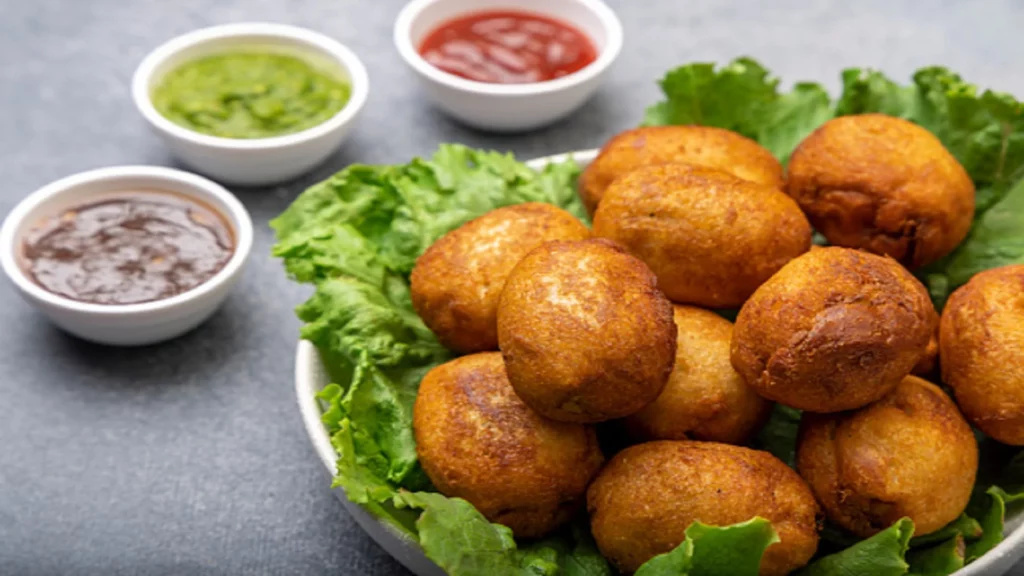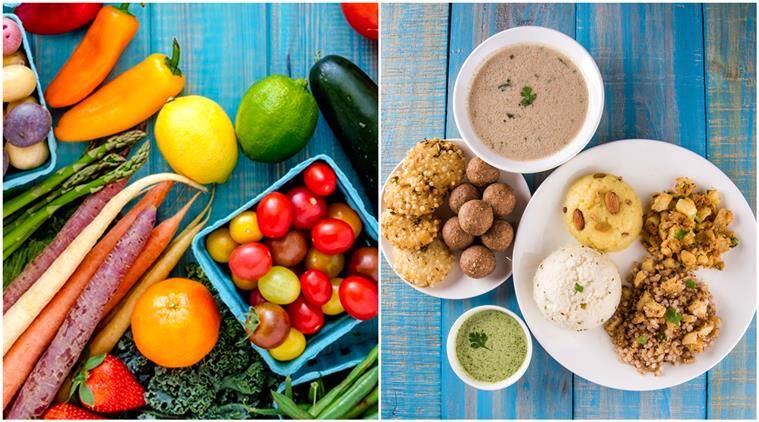On the nine days of Navratri, people observe fast in their homes along with worship. Many people fast for the entire nine days. So some people keep Ashtami fast along with Pratham. Everyone eats some fruit or other during fasting for the whole day. Generally, people like to eat potatoes. But if there is a fast for the whole nine days and it is difficult to eat potatoes every day. So prepare Falahari Aloo Bonda by making. It is very easy to make and gets ready quickly. So let’s know what is the method of making Falahari Aloo Bonda.
Ingredients of Falahari Aloo Bonda

One cup of buckwheat flour, four to five medium-sized boiled potatoes, finely chopped green coriander, two to three spoons of oil or desi ghee, rock salt, black pepper, half a teaspoon of cumin, green chili, piece of ginger, one spoon lemon juice, oil or desi ghee for frying.
Recipe To Make Falahari Aloo Bonda
Boil and peel the potatoes. Then mash it well. Heat the pan and add ghee or oil. When hot, crackle the cumin seeds. When cumin seeds are roasted, add finely chopped green chilies, and grated ginger. Fry it and add mashed potatoes to it. Now add rock salt, and black pepper and mix it well. Fry it well. Switch off the gas and add green coriander to it and mix it well.
Now take out the buckwheat flour in a deep vessel. Prepare a solution by adding a little water to it. Keep in mind that the amount of water should be added gradually. So that the batter is neither too thick nor too thin. Now put a little bit of crushed black pepper in this solution. Also, add chopped pieces of ginger and rock together. Add all the ingredients to the batter and mix it well.
When the potato cools down, prepare it by making small balls. Now put the wok on the gas and get hot by adding oil or desi ghee. Dip the potato balls in the batter and put them in the oil for frying. Fry it on medium heat and take it out. Hot Aloo Bonda is ready, serve it with green chutney.
These Things Should Not Be Eaten During The Nine Days Of Navratri

The nine days of Navratri are very sacred in Hinduism. During these nine days, people observe fasting along with worshiping Goddess Durga. On the other hand, those who are not able to observe the fast for the full nine days also follow Sattvik food and Sattvik routine. At the same time, some people detox the body these days. If you keep a fast, then some food items should be avoided especially during these nine days. So let’s know which are those things, which should not be eaten during Navratri.
- Cereal
If possible during the nine days of Navratri, one should keep distance from grains. These include wheat, rice, semolina, gram flour, maize flour, ragi, and millet flour. Consumption of all these things is strictly prohibited during the fast. In such a situation, grains should not be consumed during these nine days.
- White Salt
Indians love spicy, spicy food. At the same time, the amount of salt in their food is also high. Sea salt is used as a salt. Also called white salt. But in these nine days, instead of white salt, rock salt should be used. It is acceptable to eat rock salt during the fast. At the same time, the amount of sodium in this salt is also very less. So it is very beneficial for those with high blood pressure. Therefore, during the fasting nine days of Navratri, only rock salt should be consumed.
- Vegetables
Some vegetables can be eaten during Navratri. But some vegetables are forbidden. As garlic and onion are strictly prohibited during the nine days of Navratri. At the same time, people can consume vegetables like gourd, spinach, potato, and tomato. People include tomatoes in food because it is considered a fruit.
- Spices Are Also Prohibited
Some spices are also avoided during Navratri fast. Contains turmeric and garam masala. On the other hand, eating cumin powder should also be avoided during Navratri.
- Liquor And Non-Veg
Consumption of alcohol, non-veg, and eggs is completely prohibited during Navratri. Its consumption is considered a sin. By the way, keeping away from all these things, the toxins of the body can be reduced in nine days.


